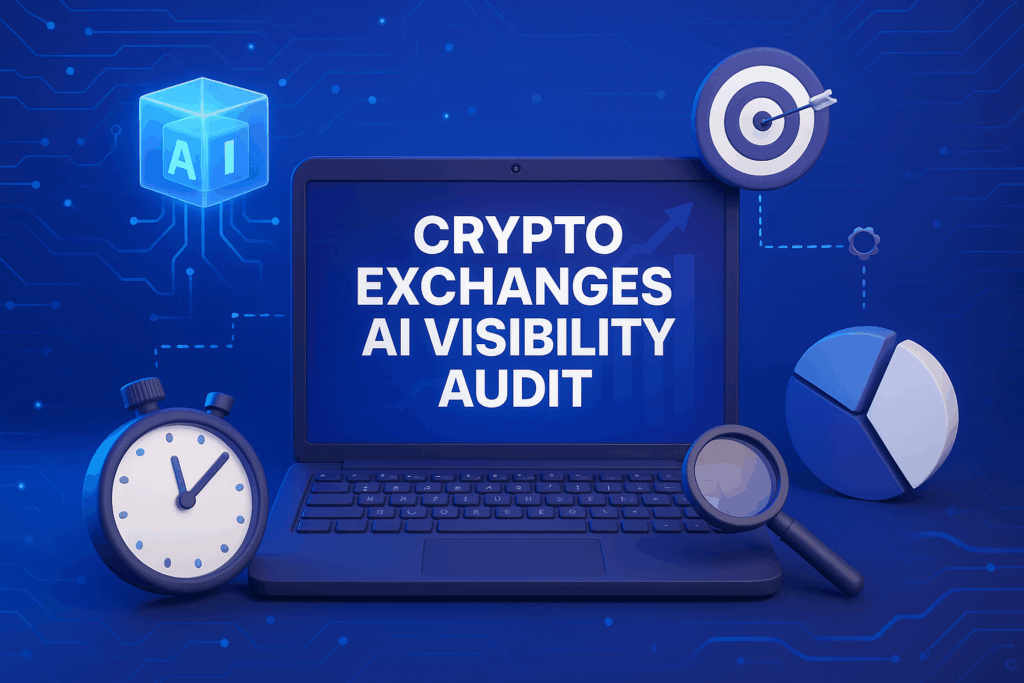share
Large companies from the traditional financial sector, such as Morgan Stanley, Amazon and Microsoft, have already joined the blockchain movement and are investing in the development of products based on decentralized technologies.
The cryptocurrency wallet development involves the use of industry-specific mechanisms that form the basis of digital currencies. The first is decentralization, which means that there is no single center that would control the operation of the entire network. Second, a true blockchain wallet is a product without a custodial function. In other words, the private keys to access the funds in the wallet belong only to the client and are stored on the local device.
In this article, we will talk about the intricacies of cryptocurrency wallet development services, find out what tools are needed for it, how much it costs and how to choose a company to get the best product without paying too much for it.
What Is a Cryptocurrency Wallet?
The crypto wallet app is a software client that stores account information with a user’s digital assets based on the private keys used to access transactions. Private keys provide the right to sole possession of cryptocurrencies. If someone else gets hold of this key, they will take possession of your funds, and you will lose them forever.
This type of application is called a non-custodial wallet. Unlike a bank account, no one controls access to the assets or user data, which remains completely confidential. Decentralized wallets work with blockchain technology.

How Popular Are Crypto Wallets?
2020 – 2021 was a breakthrough for the decentralized financial sector (DeFi): in two years, the capitalization of this market grew from $639 million to $216.21 billion (by more than 330 times). Cryptocurrency wallets are used to access DeFi products (DApps), which are often integrated into the functionality of applications.
The number of blockchain wallet users has increased by almost 1.8 times in the same period and has exceeded 81 million, according to data from the Statista analytics service.
Types of Crypto Wallets
Developers customize their crypto wallet app for a specific interface: Desktop, Mobile or Browser. Each of them has its own characteristics that are taken into account during development. Let us analyze what types of crypto wallets there are and what are their features.
Hardware Wallets
These are self-contained devices for cold storage of cryptocurrencies, also known as “cold wallets”, and are considered the most secure. Their distinction is that the private keys are stored in a secure element chip, making it impossible to access them from the outside via software interfaces.
In fact, even programs can be “cold wallets”, as users only connect to the Internet to perform secure transactions, and the digital assets and private keys are stored offline for the rest of the time. Still, software clients can be infected with viruses that, for example, change the address during the transfer of cryptocurrency.
One of the most important features of hardware wallets is the ability to perform partially signed Bitcoin transactions (PSBT). This means that the user securely signs a BTC transaction on a device without an Internet connection and then sends it through the application, eliminating the possibility of attack and forgery of the copied wallet address. Thus, the private keys do not leave the wallet and remain secure.

How to Make a Cryptocurrency Hardware Wallet?
It is much more difficult to develop a hardware cold wallet than software clients, which significantly increases the cost of the product. In addition, such cryptocurrency wallets are designed to solve a narrow range of tasks, mainly long-term cold storage of a large number of digital assets and rare use. A hardware crypto wallet is less convenient to use since every time you make a transaction. It needs to be synchronized with another device – a smartphone or computer.
Desktop Wallets
This is a cryptocurrency software that runs on the user’s local computer. There are two types of desktop wallets – “Light” and “Heavy”. Light clients do not store blockchain history but connect to trusted servers. On the one hand, this is less secure and violates the principles of decentralization. On the other hand, it allows you to quickly synchronize software with the blockchain network.
“Heavy” desktop wallets download the entire transaction history of the blockchain, but the synchronization time increases. However, in this case, users interact with a full-fledged bitcoin wallet without having to trust third-party nodes. At the time of writing, the size of the Bitcoin blockchain is ~380 GB. From a usability perspective, it is not advisable to use such clients if you are not engaged in mining and do not need advanced features, as modern programs have the necessary security features.
How to Create a Bitcoin Wallet
Desktop wallets are often used by advanced users of cryptocurrencies: Miners and Cypherpunks. Popular programs like Bitcoin Core, Electrum, and others offer advanced features like sending BTC to multiple wallet addresses, creating text notes for transfers, multi-layered security, and encryption of users’ private keys. A full-fledged Bitcoin wallet that supports all blockchain nodes can only be developed for Windows, macOS, and Linux desktop platforms.
Mobile Cryptocurrency Wallet

Mobile wallets are easy to use and cross-platform compatible, meaning they can easily sync with apps on other devices, quickly connect to DApps and store multiple crypto assets. They provide easy access to assets via a PIN or biometric authentication.
Mobile crypto wallets support features that are unavailable or impractical in a desktop wallet, such as sending and receiving crypto coins via a QR code scanner or quickly connecting to DeFi platforms via the WalletConnect air-gapped system, which is considered the most secure method of transferring cryptocurrencies and eliminates the possibility of changing the wallet address when sending.
How to Create an Altcoin Wallet?
The mobile device is one of the preferred spaces for multi-currency wallet development. Many users prefer mobile wallets when working with cryptocurrencies, and here is why:
- Convenience and ease of use.
- Quick access to digital assets in a multi-currency wallet.
- Easy two-factor authentication through touch ID or pin code.
- The user’s balance is stored on the local device, and the private key is always at hand.
- Reading the address of the buyer’s wallet with a QR code scanner speeds up the process of sending and receiving transactions.

Web Wallets
This type of client refers to “hot” wallets, which are web applications. These applications are accessed through a web browser. Web wallets are convenient because you do not have to download and install software on your PC. However, any hot wallet is vulnerable to various types of online attacks, such as phishing, and is therefore not suitable for secure transactions.
How to Create a Digital Wallet for Cryptocurrency for Browsers?
Web app development is perhaps the most favorable compared to other methods because online wallets are universal and cross-platform, meaning they can work on both desktop and mobile devices.
But due to many security issues, few developers prefer web wallets. Besides, it is quite difficult to customize the interface for multiple platforms at the same time. And plugins do not work in browsers on smartphones.

Paper Wallets
Another way to cold-store cryptocurrency assets is through paper wallets. This method is considered outdated because the paper on which the public address and private key are stored can be easily damaged, even if it is laminated.
However, there are companies that specialize in paper cryptocurrency wallet development services using special technologies such as durable paper, ink and holographic stickers. However, the cost of developing paper wallets is very high, and the demand for such wallets is much lower than that for software wallets for cryptocurrencies, as they are used to solve a narrow range of problems.

How to Develop a Cryptocurrency Wallet, and How Much Does It Cost?
- Developing a wallet app is a complex and multi-layered process that requires thorough analysis and testing of the product at every stage of work. The success of a startup directly depends on the professionalism of the developers: will potential customers want to use your product?
- The cost of cryptocurrency wallet development is composed of several factors:
- Complexity. The more features the app has, the more difficult it is to develop and the higher the cost for the client. To define functionality, you first need to evaluate the value you are acquiring and decide whether to focus on advanced features now or add them later as the user base grows. You should keep in mind that many beginners do not need advanced options and that it is enough to use the basic functions.
- Usability. Developing a user-friendly wallet requires the involvement of designers – they develop a user-friendly interface and customize it to meet the needs of users.
- Security. Most crypto wallets are limited to basic security features: PIN code, Touch ID, and password for account access. Developing additional security features, such as multi-factor authentication or multisig, increases the scope and time of development.

How to Create Your Own Crypto Wallet: Development Stages
The final cost must be calculated by taking into account all stages, from concept and UI development to marketing strategy. Here are a few basic steps for creating wallet apps.
Choosing the Type of Crypto Wallet App
Decide which wallet you want to develop. Both cost and complexity depend on that factor. Desktop and web wallets can be more expensive because, in addition to creating an interface, you need to ensure security against viruses and phishing attacks on user accounts.
Choosing a Development Method
You can independently develop a cryptocurrency wallet app and turn to professionals: freelancers or a cryptocurrency wallet development company. Each method has its advantages and disadvantages, and the choice will affect both the cost and time of app development.

Designing the Crypto Wallet App
At this stage, you need to determine what the wallet app will look like and what features will be available. First of all, cryptocurrency wallet developers design a user-friendly interface that is convenient for users. This is almost the most important step.
Next, they work out the functionality of the wallet. They need to provide the minimum necessary functions for the digital wallet: sending and receiving transactions, fast synchronization with the blockchain network, transaction fee management, QR code scanner and WalletConnect, and two-factor authentication.
Development and Testing of the Product
Until all the functions of the crypto wallet are working properly, you cannot present the product to the public. And if your cryptocurrency wallet app is unstable and has a lot of lags, then you will quickly lose customers and acquire a negative reputation, which will only complicate the process of advertising in the future. Saving money on wallet development is not a good idea. Better to contact experts and get high-quality results. After all, trying to save money and ordering services from inexperienced developers, you not only risk overpaying but also significantly increase the time spent.
Deployment of Crypto Wallet App
If you are developing mobile wallets for iOS and Android platforms, you’ll need to place applications in the App Store and Google Play, respectively. While Google is not too picky about apps, the Apple marketplace is stricter, and your wallet app will not be published until it meets its requirements. This is another reason why it’s worth hiring a professional company for development: they’ll be able to adapt the product to the App store’s conditions, which will significantly shorten the time to launch.
Promotion
Your crypto wallet app is developed and published, but this is just the beginning. Next, you need to collect a user base, which you need to constantly increase. To develop an effective marketing campaign, you need to turn to professionals.
ICODA marketing agency helps crypto companies get funding and offers comprehensive services for the development of DeFi projects:
- Creation of an adaptive website that meets modern standards.
- Development of transparent smart contracts and blockchain applications that ensure the security of transactions.
- Promotion of DeFi projects, which will make the brand recognizable and attract active users.
The company accompanies customers and oversees the development of the product at all stages, from development to marketing. With ICODA, your startup will reach a new level!
The Cost of Mobile Wallet Development
It is very difficult to calculate the exact amount for creating an application in advance, as it depends on the functionality, the number of coins and tokens supported, whether the import supports a private key or not, the complexity of the design, and other factors. Here is an approximate calculation of the cost of developing a wallet for mobile devices based on iOS and Android.

Including marketing costs, the final cost to develop the wallet may exceed $100,000. While this amount can be reduced if you go directly to specialists rather than the company, it will increase time and complexity. Besides, there is a possibility that the quality of the result will not meet your expectations. So it’s better to trust professionals and pay a little more but get a result that will not only meet expectations but may even exceed them.
How to Develop a Cryptocurrency Wallet, and Which Method to Choose?
To develop a crypto app, you need to hire a team or contact a crypto wallet development company that specializes in this.
Development Team
You can turn to a freelance exchange and build your own team, but this method is not for everyone. First, it can be quite difficult to assess the actual skills of individual specialists and the cost of services, and the assessment is not a guarantee of the quality of the service. Secondly, it is necessary to establish communication between team members and organize the work process, which also requires entrepreneurial skills.
In this way, you can reduce the cost of development, as there is no intermediary who will charge an additional fee for their services. But you sacrifice convenience.

Pros
- Lower cost of wallet development.
- You have full control over all processes, set deadlines and monitor the progress of the work.
- The ability to use different working conditions: for example, you can issue your own token and reduce the cost of payment by offering team members to receive part of the remuneration in cryptocurrency, the price of which may increase in the future.
Cons
- You need to manage a team or hire a leader, which increases the cost of crypto wallet development.
- Entrepreneurial skills are required.
- Long-term search for candidates and constant interaction with them.
- Risks that can lead to additional costs. For example, freelancers might not be competent enough, and you will have to look for other specialists, which also extends the wallet development time.

Cryptocurrency Wallet Development Company
The cost of development will increase, but you will be relieved of a large part of the tasks, as the company itself will organize the entire process, and you will only need to create a task and select the necessary services.
The cryptocurrency wallet development company offers a full range of services and is aware of all the nuances and complexities that may arise when creating a wallet app.
Pros
- Reliability: the company specializes in creating crypto wallets and knows enough to provide the customer with a complete product that can be immediately launched and offered to users.
- The stability of the wallet app: all the features are tested and debugged. You do not have to worry about changing the product.
- Speed: for companies that develop wallets, the process is almost automated, so they can complete the work in a short period of time, which is usually known in advance.
- Security: before a product is released, professional cryptocurrency wallet developers check if it meets security standards and know-how to fix the most common vulnerabilities.
Cons
- High development cost.
- There is no complete control over the course of work.
- The risk of becoming a victim of scammers – you need to carefully research and learn more about the reputation of the company before using its services.
Independent Cryptocurrency Wallet Development
You can explore the technology stack and become a developer yourself/find a team of like-minded people and create your own ideal wallet app. The developers of Ethereum, BSC, Solana, Cosmos Network, Near, and other blockchain platforms provide detailed SDKs and documentation to simplify the development and operation of decentralized applications. But it will be difficult to imagine how long it will take and whether you can achieve the desired result if you have no experience in programming and promoting crypto startups.
Pros
- Development costs will be minimal.
- The element of trust is missing: you know what is in the source code of the cryptocurrency wallet app. For example, unscrupulous freelancers may intentionally leave backdoors that they then use to take control of other people’s assets.
Cons
- You need to understand blockchain technology and cryptocurrency wallet service development.
- Experience and knowledge of programming languages are required.
- The development time for digital wallets will increase significantly, and the outcome will be unpredictable.
- There may be vulnerabilities in the source code that require extensive security expertise to discover.

Why Is Mobile App Development Often Chosen?
If you look at popular crypto wallets like Trust Wallet, Coinbase, Blockchain.com or SafePal, you will notice that many of them do not have desktop clients.
Why is that, actually? Users prefer mobile platforms mainly because of convenience and associated factors. There is no reason to spend more money on developing a wallet app. Let us take a look at why many users choose a mobile crypto wallet rather than another desktop or hardware wallet.

Ease of Use
When a crypto owner wants to send coins to another user or to the balance of exchange, all they need to do is take the device out of their pocket, open the app, scan the wallet address, and press the button to transfer coins. And all this usually takes less than a minute. You do not have to wait for the crypto wallet to sync with the blockchain network or enter the address manually.
Security
A desktop or browser-based crypto wallet cannot be protected by biometrics: anyone who picks up your device and guesses the wallet’s password will gain access to your crypto assets. Mobile wallets are protected by biometric authentication, and without your fingerprint, it is impossible to open the application. You do not need to use a password that can be stolen by infecting your device with a virus or by phishing.
Moreover, the mobile crypto wallet supports security features such as Air-Gapped – sending transactions via a QR code that eliminates errors when entering and replacing a wallet address.

Constant Monitoring of Assets
If you are not at home and do not have the device at hand, you will not know what is happening with your funds and may not be able to act quickly. All actions in the mobile crypto wallet are recorded: the application sends a push notification. This way, for example, you will know in time when someone else tries to withdraw cryptocurrency, and you will be able to intervene quickly.
Features of Mobile Crypto Wallet Development
Let’s talk about what features should be considered in wallet development.
Quick Authorization
The first thing a user starts with is authorization in the crypto wallet. The faster you can log in, the better. Only mobile wallets are able to provide secure and fast logins without passwords and fingerprints. With browser and desktop clients, you have to enter a password every time for authorization, not to mention that you may not always have the device at hand.
Support for Multiple Crypto-Assets and Crypto Portfolio Monitoring
One of the most important features of a cryptocurrency wallet is that you can manage your portfolio in one place without having to switch between different interfaces. Equally important is providing users with real-time price information, which the application receives from data providers via the API.
User Interface
The UX /UI design of a cryptocurrency wallet is one of the first things you need to focus on. The shorter the path from the launch of the wallet to the moment the transaction is sent, the more points in favor of your application. The ideal path looks like this:
- A user opened the wallet.
- They selected coins or tokens.
- They scanned a wallet address.
- A crypto asset is sent.
This is the shortest possible path for a multi-currency crypto wallet. Each additional step reduces the chances that the user will prefer your product. Other options, such as commission settings and the ability to speed up transactions, are also needed, but the art of design is to make them accessible without compromising the user experience. That’s another reason why it is worth entrusting this issue to a professional agency.
Safety
Mobile wallet development is about protecting users’ assets from possible attacks and unauthorized access to a local device. Security must be ensured so that the private key is under reliable multi-level protection, even if it is stolen.
Private Key Import
No less important is the function of importing other crypto wallets, as users often need to use cryptocurrencies on different devices. With a private key, you can import a software or paper wallet into the application.
Integration of Crypto Payments
Not every wallet solution supports the function of buying cryptocurrencies within the application. For those who do not plan to trade cryptocurrencies regularly and keep assets for several weeks or months, it will be more convenient to buy/sell coins or tokens directly in the crypto wallet without registering on the exchange.
Questions

What Is Crypto Wallet Development?
This is the process of creating a software or hardware interface for performing various operations with crypto assets: storage, transfer, trading, staking, providing liquidity, and many others.
How to Make Your Own Crypto Wallet?
You need to familiarize yourself with wallet development services and explore the technology stack. This will take a lot of time if you have no experience in this area. Therefore, it makes more sense to leave the cryptocurrency wallet app development to a professional team or a company that specializes in such services.
How Much Does Wallet Solution Development Cost?
The cost can vary from a few thousand to hundreds of thousands of dollars. The more complex the wallet and the more functions it has, the more expensive the development will be. If you would like a quote for your wallet solution, please contact us via this feedback form.
How Long Does It Take To Build a Crypto Wallet?
Depending on the complexity of the development – from 3 months to a year. Like the cost, the time spent on the development of the task is calculated individually.
Conclusion
As you can see, there are several options for wallet development – from cross-platform hot wallets to desktop Bitcoin wallets with support for full blockchain nodes. You can create your own cryptocurrency wallet or use the services of professional developers by contacting the company.
Whichever way you choose, ICODA will help with wallet development at every stage and make a product that any user will like!





![CONF3RENCE 2025: Leading Web3 & AI Event [Promo Code ICODA20]](https://icoda.io/wp-content/uploads/2025/06/6203-23-1024x580.png)



